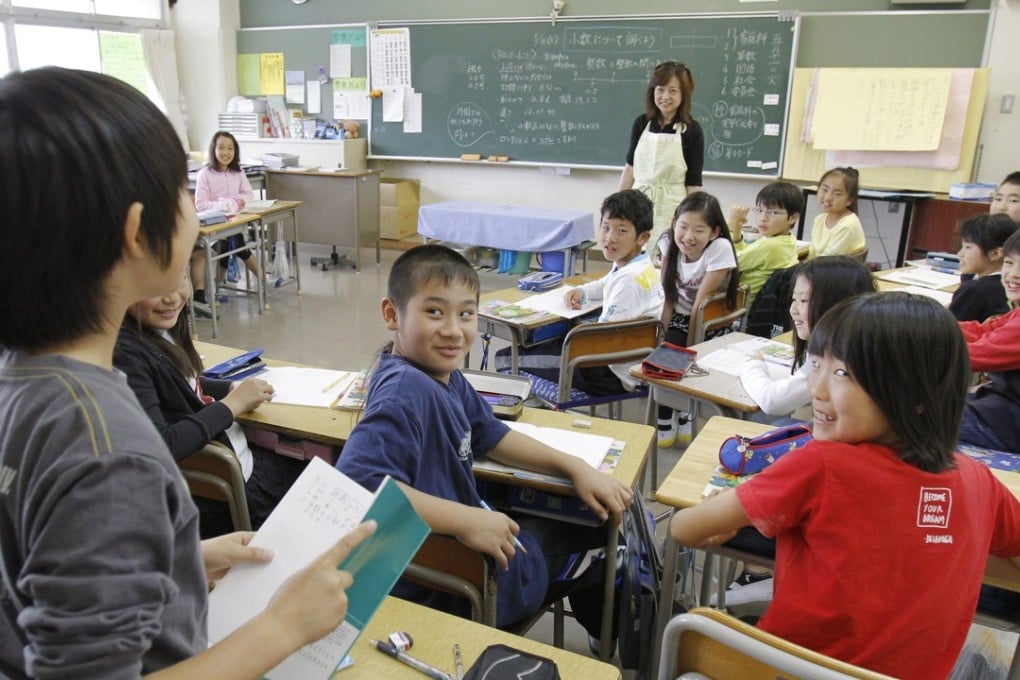Japanese schoolteachers work more than 11 hours a day, raising fears about death from overwork
- The Japanese government is aiming to slash the proportion of employees working more than 60 hours per week to maximum 5 per cent by 2020

Teachers and officials at elementary, junior high and high schools across Japan are working more than 11 hours per day on average, raising concern about serious health repercussions or even deaths, a government survey showed on Tuesday.
Senior staff such as vice principals were found to have worked particularly long hours, with their daily average standing at about 12.5 hours.
This means they worked 4.5 extra hours per day, or 90 hours per month, well over the 80-hour monthly overtime threshold, beyond which the risk of karoshi – or death from overwork, could increase.
In the survey which drew responses from some 35,000 schoolteachers and officials, 80.7 per cent said they have stress or concerns related to work, of whom 43.4 per cent cited long working hours as the cause of their distress in a multiple-choice question.
Among other reasons behind stress, 40.2 per cent cited personal relationships at work and 38.3 per cent dealing with parents.
The survey results were mentioned in a white paper on measures to prevent death from overwork adopted by the government on Tuesday. The document was released based on a law to promote steps against death from overwork, which came into force in 2014.